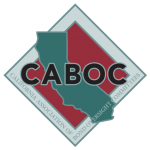
Legislative Proposal 2023
2023 Legislative Program Final PDF
Legislative_Proposal_2023-Final_8.23.22.pdf
Legislative Program 2023 At-A-Glance
Legislative_2023_Glance_Final-August_8.23.22.pdf
CBOC Compliance Survey:
CBOCCompliance_Survey_12pgs.pdf
Legislative Program Presentation:
2022_Conference_Legislative.pdf
2023 Legislative Proposal • Fact Sheet
Reviewed Legislation Committee 10.15.22
Background
In 2000, the voters passed Proposition 39 (2000) to address several school facilities-related issues. One provision in Prop 39 allowed voters in local school districts to approve local school bond measures with a 55% vote. But suppose residents approved a local school bond measure by a 55% vote (instead of a 2/3 vote). In that case, that district must establish an “independent” citizens’ bond oversight committee (CBOC) to oversee how the bond money is spent.
The Promise of Independence
Following Prop 39, related statutes and countless local bond measures across California have promised voters the appointment of “independent” CBOC members who have the authority to exercise “strict oversight” of how the bonds dollars are spent. With $181 billion in local school bonds approved by voters under Prop 39, there are now more than 500 CBOCs in California.
The Reality Doesn’t Meet the Promise
In practice, many CBOCs are neither independent nor capable of exercising meaningful oversight responsibilities. The school board or administration often manages the CBOC, they never meet, or the members have not been appointed.
The Little Hoover Commission explored this issue in 2017, and one witness testified before them and remarked that “the watchdog has no bite.” The Little Hoover Commission has pulled no punches in calling for legislation to “update and overhaul the Education Code related to the Strict Accountability in Local School Construction Bonds Act of 2000,” known as Prop 39.
It is long past time for California legislators to take action to fulfill Prop 39’s promises of independence, accountability, and effective citizen oversight of millions of dollars of taxpayer funds now spent every year on school facilities.
Proposed Legislation: To Assure Greater Independence
CABOC proposes legislation that aligns with the Little Hoover Commission’s recommendations to affirm the independence of CBOCs and bolster their effectiveness. This proposal is consistent with the general principles found in Education Code §15264, which requires “vigorous efforts are undertaken [to ensure] that bond measures are in strict conformity to the law.”
CABOC’s proposed changes include the following:
Require the California Debt and Investment Advisory Commission (CDIAC) to work with CABOC to
- develop easy-to-access online training materials for local citizens’ bond oversight committees
and their members. - Strengthen the independence of CBOCs by specifying that each CBOC must adopt by-laws consistent with CBOC control over their process and rules of operation.
- Strengthen bond program audit requirements and expand the role of CBOCs in selecting and interacting with auditors.
- Require bond ballot language to refer to specific projects in the district’s facility master plan instead of highly generalized projects, such as “safety upgrades” or “technology improvements.”
- Make CBOC membership selection and appointment more transparent, open, and merit-based.
- Require districts to provide adequate funds for CBOCs to fulfill their mission of reporting to the general public by enabling bond revenues to be used to fund the cost of independent legal counsel for a CBOC, to train CBOC members, and to maintain a website to display meeting agendas and reports prominently.
Strong Bond Oversight Support
Little Hoover Commission, Report: June 2009, Bond Spending: Expanding & Enhancing Oversight
Little Hoover Commission, Report #236, February 2017,
Borrowed Money: Opportunities for Stronger Bond Oversight
Both of these reports were based on testimony from taxpayers and other organizations, including Howard Jarvis Taxpayers Association
- League of Women Voters of California,
- California State PTA,
- California Association of County Treasurers and Tax Collectors,
- Fiscal Crisis & Management Assistance Team,
- State Controller,
- State Auditor,
- State Allocation Board
- Education Audit Appeal Panel
